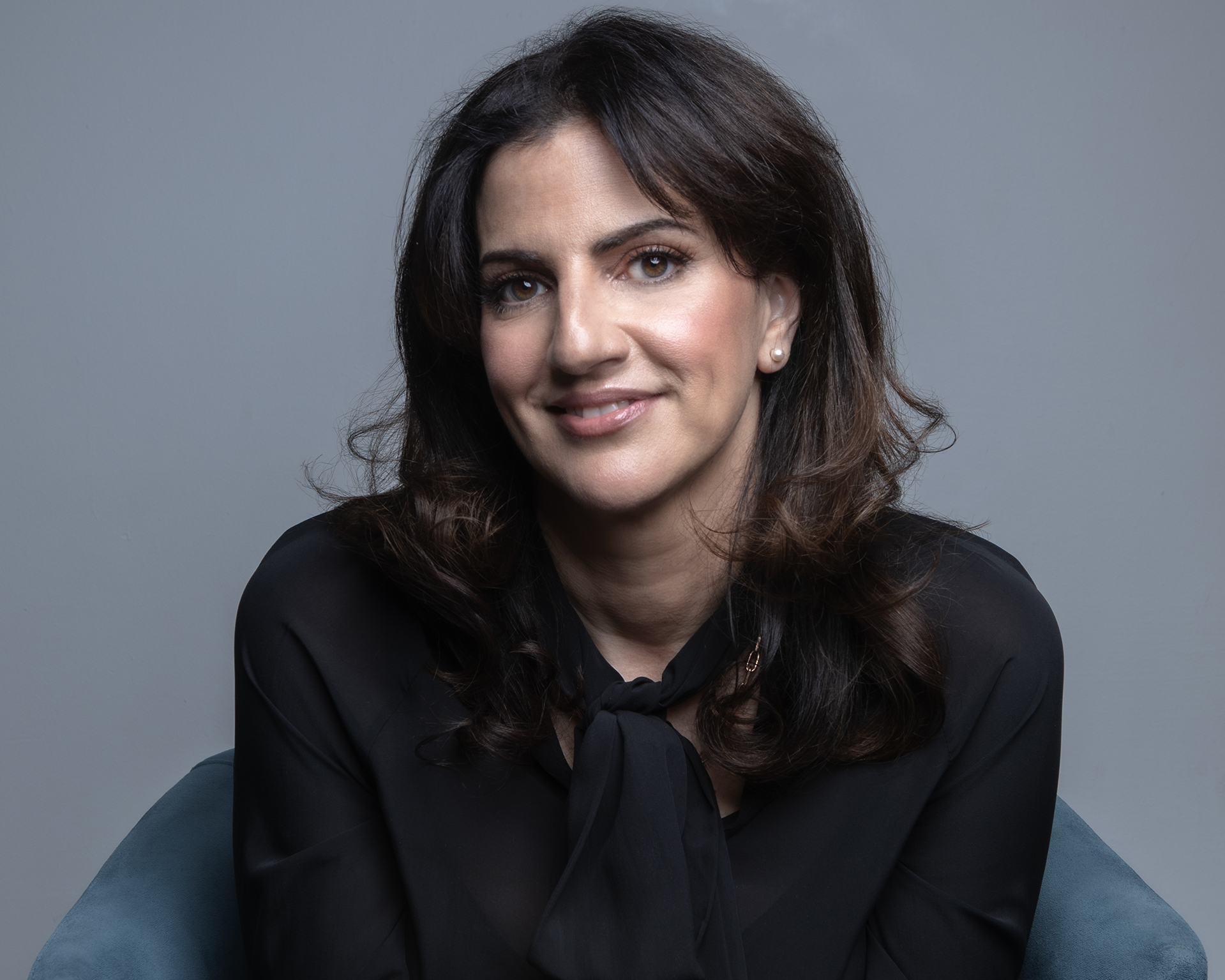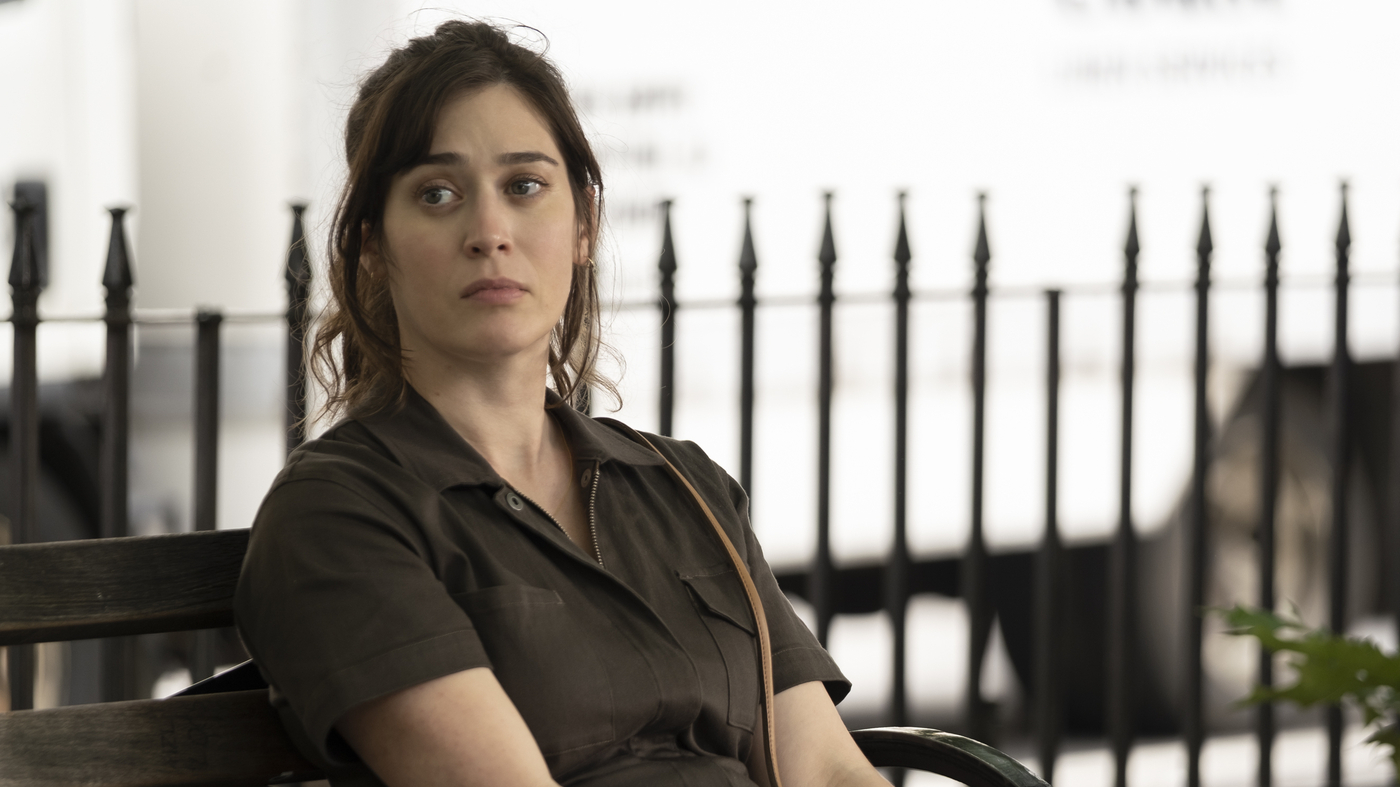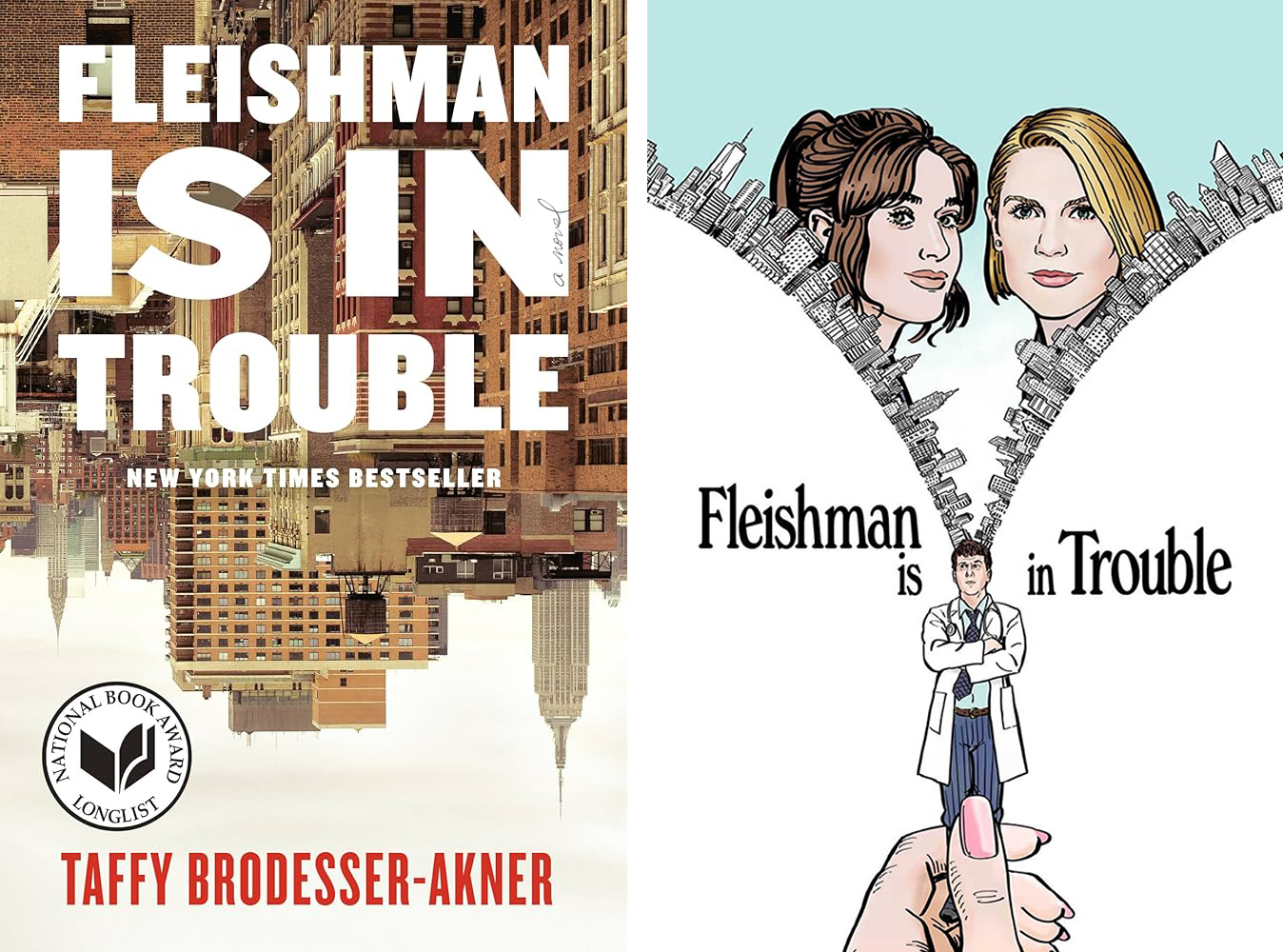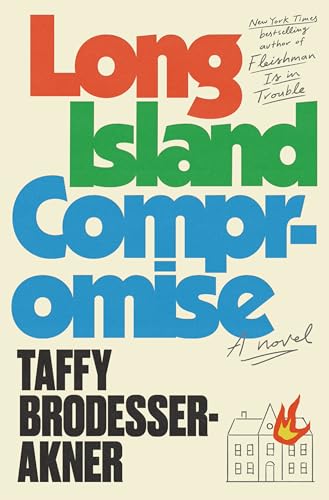
Taffy Brodesser-Akner '97 | Photo by Emil Cohen
“I don't think an artistic life is supposed to only have success in it. When I talk to someone who has just had a critical failure, I don't look at them and say ‘wow, you’re marked for life’. I look at them and I say, ‘what a privilege it is to be able to participate, to fail or to succeed in front of the world.’”
Taffy Brodesser-Akner really wants her son to do his laundry. He’s been warned that we might not even be able to do this interview if he doesn’t start his laundry right now. He leaves for summer camp tomorrow and she’s on a deadline, and if she has to remind him one more time, she’s not going to be happy. Her son, on the other hand, wants to show me a new trick he’s taught their dog.
We’re sitting in Taffy’s Upper West Side home on a June afternoon. It’s a balmy 85 degrees in Manhattan, the windows are down, and we’re lounging on her couch. She gives him one final warning, and I hit record as we continue a high-energy conversation that began the moment I walked in the door.
Taffy is a storyteller. A graduate of NYU Tisch’s Goldberg Department of Dramatic Writing, she set out after graduating from Tisch with one goal: to become a successful writer. Today, she’s accomplished that goal many times over, but she doesn’t like to dwell on the fact.
Many know Taffy from her debut novel, Fleishman is in Trouble, which was released in 2019. The book became a bestseller nearly overnight and was acquired by FX on Hulu as a limited series adaptation. Fleishman is in Trouble the show, for which Taffy was the lead writer and executive procuer, (and which features Josh Radnor, another Tisch alumnus!) would go on to pick up 7 Emmy nominations.
Many others know Taffy from before 2019, when she made a name for herself as a quick-witted journalist with a knack for getting to know unknowable people. A celebrated celebrity profiler for the New York Times, Taffy is arguably more familiar with sitting on the other side of the tape recorder (or in my case, the voice memo app). She’s profiled such figures as Gwyneth Paltrow (“How Goop’s Haters Made Gwyneth Paltrow’s Company Worth $250 Million”), Bradley Cooper, (“Bradley Cooper Is Not Really Into This Profile”), and Tom Hanks (“This Tom Hanks Story Will Help You Feel Less Bad”), just to name a few.
Her profiles are rarely short conversations; she’ll often spend weeks or sometimes even months with her subject and their friends and families, getting to know them on a personal level and observing their lives (or at least, what they’re willing to show her). Sitting on that couch, I know I don't have that kind of time, so I cut to the chase.
“If you were going to write a profile on yourself in the way you profile others,” I ask, “what would you show yourself? What might you try to make sure the interviewer saw, and what might you hide?”
“That's interesting…” she muses. “The way I interview people, I don't come with a lot of questions. I come ready to hear what they want to say and to signal to them that I’m listening. So in light of that, what would I say…?” She thinks for a moment.
“You know, every time someone has done a profile on me, they’ve always noted that I would have liked to have written it myself. I'm so interested in the mechanics of storytelling. I can't even tell a small anecdote without saying ‘this is where I would put that…’” She laughs, “I’m such a control freak.”
“If I spent this whole time trying to get my son to do laundry,” she continues, “I would hope that you would write a story about the time you came to visit me. I would say that at this moment in time I've rescheduled on you, like, six times—no, no, I know, but that's part of the story—I rescheduled on you. I have a book coming out. I have a magazine story that's due by Friday. My husband is out of town, and my son has to do his laundry because he's going on a school trip tomorrow.”
Taffy goes on to say that truthfully, the things she’s telling me have nothing to do with the story of the moment. When she’s sitting across from someone she’s profiling, she asks herself: Why are you telling me what you’re telling me? What are you really trying to say?
What I gather she’s really trying to tell me is that she is busy. Happy to be busy! But busy. The life around her reflects it—a computer sits open on the couch, a cursor blinking in the midst of her latest piece; her assistant sits at the counter, no doubt responding to emails from people like me trying to find time on her calendar; her son is digging for snacks in the fridge (the state of the laundry remains unclear) and her other son is (hopefully) packing for camp in the other room.
“The fact is,” Taffy continues, “that I’m at this weird moment in my life where I don’t really acknowledge how much things have changed over the last few years because if I did, I would have more infrastructure in place. I would have hired someone to do our laundry, or maybe I would have made sure that our interview was in a quiet, alone space. But I'm still trying to do everything.
“If I had to analyze where I am right now, I'm still trying to hold onto who I was as that person has already left the gate.”
A native New Yorker, Taffy’s NYU roots run deep. Born in NYU faculty housing, her father was a computer professor and her mother is a graduate from what is now the Stern School of Business. After growing up in an orthodox Jewish household in Brooklyn, she applied to Tisch to become a writer and found more than a love of story structure at 721 Broadway. In her own words, she found her people.
“I didn't even know they existed!” she says. “People like me who were interested in the same questions, who had the same point of view in the world.” Today, she says, “I have found plenty of ‘my people’ since then. I married ‘my people’, [aka Taffy’s husband, Claude Brodesser-Akner] and we are in the process of raising our people,” she says, gesturing to her sons in their rooms.
After graduating from Tisch in 1997, she set out to become a professional writer (read: get paid to write) and started her career as a journalist at Soap Opera Weekly.
“I was eventually fired for not being one of them,” she laughs, “meaning that everyone else was a big soap opera fan. And I was like, this is hilarious. The lesson that taught me was that you should never write about anything until you understand why people love it.”
Taffy continued to work as a freelance journalist for major publications (GQ, ESPN the Magazine), making a name for herself byline by byline. In 2017, she was hired as a full-time staff writer for the New York Times, quickly becoming a favorite with her celebrity profiles.
“[At that point], I felt like I was a successful journalist. But I always wanted to go back to screenwriting, and I didn’t think I had the right to ask to be successful at two things.”
“Do you still think that's true?” I ask.
“Not anymore. But what I had in my head was, ‘I'm so lucky to be successful at one thing.’ That said, the reason I was good at journalism was because of everything I learned about storytelling. At one point, my husband bought me a new computer for my birthday, and he installed Final Draft for me. It was the first time I had Final Draft since I was a student. And he said ‘I just want to remind you that you wanted to do this.’ So I started writing scripts again.”
Taffy wrote Fleishman is in Trouble in 2016, the year of pantsuits, pussy hats, and “The Future is Female”. The story initially introduces the audience to the plights of a man named Toby Fleishman and his divorce from Rachel Fleishman, but those who have read the book (or watched the show), know that there is much more beneath the surface. Namely, the narrator who becomes an integral part of the story herself.
“So, I had never written a novel. When I started writing Fleishman, the only thing I knew for sure how to do for sure was write a profile.” Taffy says as our conversation turns to the novel.
“I had a lot of friends going through divorces, and I kept hearing the same story all the time from my male friends about how angry their ex-wives were. And I was like, I wonder if my husband would say that about me if things went wrong?
“Nobody ever said, ‘I wonder why she was so angry?’ And to me that was very interesting. I listened to their sides of the story and I believed them, but I also knew that there couldn’t be this army of evil women who are destroying their marriages.
“I didn’t want to just write a divorce novel, I wanted to write about someone who was witnessing this moment.”

Libby Epstein played by Lizzy Caplan in 'Fleishman is in Trouble'
As Taffy witnessed the moment externally, the witness in the case of Fleishman is the character of Libby Epstein—former men’s magazine writer and current stay-at-home mom living in New Jersey. As the story evolves, Libby finds herself faced with a similar issue that Taffy articulated earlier in our conversation: still trying to hold onto who she was as that person has already left the gate.
“I can’t help but see some resemblance between you and Libby,” I say, and Taffy nods slightly. “Were you going through your own Libby-esque moment when you started to write the book?”
She pauses briefly, something occurring to her.
“Now that I think about it, I know what was going on with me at the time. I was going on a bunch of interviews with men. Men who were in their early 50’s who were on their second marriages, usually with someone who used to work for them. You know, a nanny, an assistant, etc. And that person was usually much younger, so the men got a new set of kids. Oftentimes in these interviews, I was thinking of the initial wife, who did not have the opportunity in her 50’s to start over and have another set of kids.
“[In writing a profile], you start out with spending all this time with someone, and then you end up with yourself writing it. And what you're left with. And that's how that happened in Fleishman. As I was writing, I realized what was missing was this character that would eventually explain things, and also explain how she was changed by the telling of the story, and what she was doing there in the first place.”
Fleishman is in Trouble was released on June 18, 2019, just over five years ago. The book received glowing reviews from The New York Times, the Guardian, NPR, and The New Yorker, among many others, was long-listed for both the National Book Award and the Carnegie Medal, and named a New York Times Notable Book of 2019.
Taffy doesn’t take any of it for granted.
“You know, we were lucky that we got mostly good reviews on Fleishman. We got a few terrible ones—just a couple. But they didn't really bother me because fundamentally, I respect the criticism.” She says. “I know that actually not being reviewed is worse. There are so many things that don’t even get reviewed; I mean, to me that is devastating. To be in the conversation, especially at this point in civilization where there's so much noise. Will anyone actually read my book, or will it find someone on the day they needed it?”
As previously mentioned, Taffy doesn’t care to dwell on her success. As she says, “that would require me to stop and take a survey of the land. And I'm against that. You know, a surgeon can be a successful surgeon, but then there's a body in front of you, and you owe it to that body to not be arrogant.”
“There's this book that I read very often. It was written by a critic at the Times who is a friend of mine, A. O. Scott. It's called Better Living Through Criticism, and it says that all attempts at creation are valid. You'll never make something perfect, but there is perfection in trying.
“I don't think an artistic life is supposed to only have success in it. When I talk to someone who has just had a critical failure, I don't look at them and say ‘wow, you’re marked for life’. I look at them and I say, ‘what a privilege it is to be able to participate, to fail or to succeed in front of the world.’”
To Taffy, the most important thing is the next attempt.
Her newest novel, Long Island Compromise, was just released on July 9th, 2024. At the time of this article, the book has received rave reviews—but I know that ultimately, Taffy remains just grateful to be part of the conversation.
Last year, Taffy was asked to return to Tisch to teach a course in the Goldberg Department of Dramatic Writing. I ask her what it was like to come back after all of these years.
“First of all, it's such an honor to be asked to teach, because when I was a student there, I was consumed with all of these questions of whether or not I'd be successful, whether or not I'd be allowed to be a writer. I watched for many years as so many of my classmates did not continue. It’s a hard life! But I kept hanging on.
“I tell my students, I can only teach through the prism of seeing myself sitting there in that classroom. Having had that experience, I believe the best gift you can give a student is endurance. Being a writer in the world before you are successful means listening. It means trying. You keep trying and hopefully, you will be incrementally successful so that when you look back, you say ‘Ah! This was my path.’”
By now in our conversation, her son has started his laundry. The dog is lying on the floor, dozing in the late afternoon heat. And it’s time for me to leave. As our conversation winds down, I can see in Taffy’s eyes that her thoughts start to turn back to the responsibilities of the day. The New York Times Magazine true crime article that’s due by Friday; the film she’s pitching for Apple TV; the release of her second novel.
Today, Tuesday, July 16th, Taffy’s magazine story has been published. Her son may be home from camp and has likely had to re-wash all of his clothes (at least, I hope). And whatever Taffy is working on today, this author trusts that she’s busy with a new project on the horizon, but still happy to be in the conversation. Like the laundry, it’s all a cycle. ♦

